Alarm bells start ringing over illegal sales of GM rice
Updated: 2014-07-29 07:34
By Wang Qian (China Daily)
|
||||||||
Emergency meeting triggered by supermarket discovery in Wuhan
Claims that genetically modified rice that has not been approved for sale in China is being supplied illegally in a number of provinces have triggered alarm.
China Central Television reported on Saturday that three of five bags bought at a supermarket in Wuhan, Hubei province, were found to contain GM rice.
The rice was analyzed at the Chinese Academy of Inspection and Quarantine.
Hubei Agricultural Bureau held an emergency meeting on Sunday and said it will cooperate with local police to crack down on the illegal sale and cultivation of GM seeds.
A manager at a food-processing factory in Shanghai, speaking anonymously, told CCTV that the cultivation of GM rice is becoming widespread and some rice grown in Hubei, Hunan, Anhui and Fujian is genetically modified.
Zhang Qifa, a biotechnology professor at Huazhong Agricultural University in Hubei province who initiated a GM rice project, admitted that GM seed could be available because before 2001 supplies were not strictly supervised.
Huang Dafang, a former member of the country's biosafety committee in charge of agricultural GM organisms, said experimental plantings have been carried out for two decades and that, as a result, GM seeds might have reached the public.
In recent years, a number of cases involving the illegal sale of GM rice have made headlines. But Huang said the rice is safe and there is no need for the public to panic.
In 2009, the National Biosafety Committee issued a certificate for two strains of GM rice, approving open field experiments but not commercial sales. The certificate will expire on Aug 17.
Although China has strict regulations on GM food registration and production, some say there is not enough official transparency.
"The government is hiding the truth from the public," said Shi Baozhong, a lawyer from Anhui province who wrote an open letter to the China Food and Drug Administration and the Ministry of Agriculture, asking them to provide more information about GM food.
Cui Yongyuan, a political adviser and former TV talk-show host, posted on Sina Weibo on Sunday that he and his team have collected 30 suspected GM seeds. However, he said the General Administration of Quality Supervision, Inspection and Quarantine refused to test the samples.
"The authorities shouldn't pretend to be ignorant of the problem," he added.
In May, the agricultural authorities called for tighter supervision of GM food.
Import certificates for GM crops have been granted for soybeans, corn, rapeseed, cotton and beets, allowing them to be imported as raw materials for domestic processing, according to the ministry.
There have been growing calls for a public debate on GM crops and clear labeling of products containing them.
Food and drug authorities in Gansu province have asked local markets to set up special zones for GM foods.
The ministry's media office did not respond to requests for a comment on Monday.
wangqian@chinadaily.com.cn
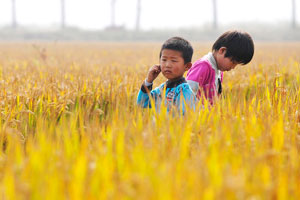 |
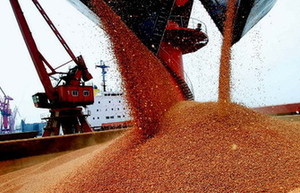 |
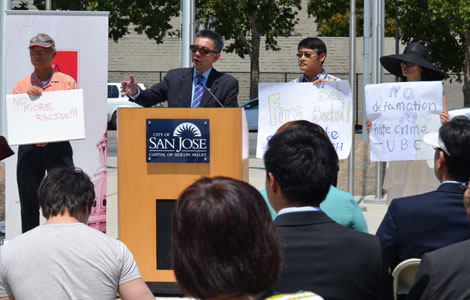
 Silicon Valley rally calls on Fox News to fire Beckel
Silicon Valley rally calls on Fox News to fire Beckel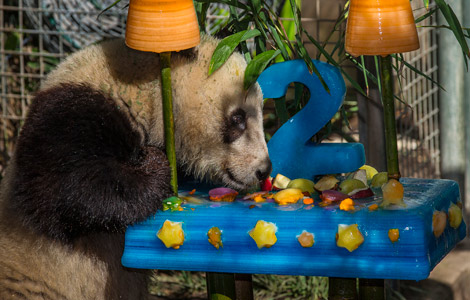
 Look who's two, Xiao Liwu!
Look who's two, Xiao Liwu!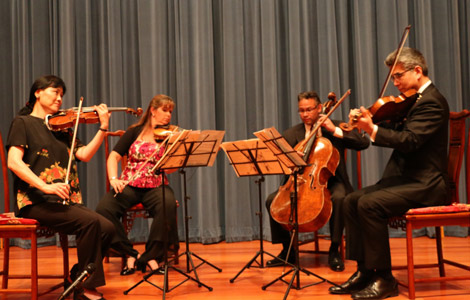
 Philadelphia Orchestra meets the press
Philadelphia Orchestra meets the press
 Chinese, US naval hospital ships conduct exchange
Chinese, US naval hospital ships conduct exchange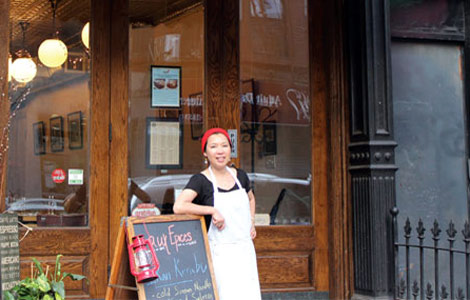
 High rent pressures NYC Asian eateries
High rent pressures NYC Asian eateries
 Artists advocate for environmental protection
Artists advocate for environmental protection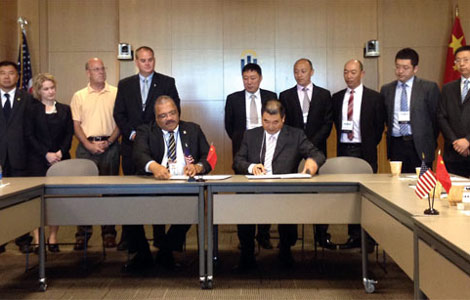
 Wichita, Kansas to Xi'an, China: Come fly with us
Wichita, Kansas to Xi'an, China: Come fly with us
 Amateur team aims for great heights
Amateur team aims for great heights
Most Viewed
Editor's Picks

|

|

|

|

|

|
Today's Top News
Ex-security chief Zhou Yongkang under probe
Microsoft probed for monopoly
4 charged for murdering student
Prudence urged over solar dispute
Baidu developing 'self-driving' car
US visa delays likely to continue
McDonald's fishing for supplier
OSI group to fund food safety
US Weekly

|

|






